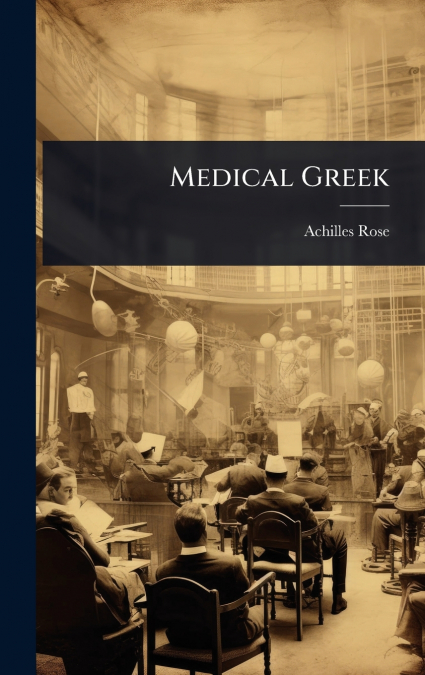
Achilles Rose
Medical Greek: Collection of Papers on Medical Onomatology, and a Grammatical Guide to Learn Modern Greek, by Achilles Rose, offers a comprehensive exploration of the intersection between the Greek language and medical terminology. Originally published in 1908, this work is divided into two distinct yet interconnected parts. The first section comprises a collection of papers delving into medical onomatology, examining the origins and evolution of medical terms derived from Greek roots. It sheds light on the historical context and linguistic nuances that shaped the language of medicine.The second section provides a grammatical guide designed to aid readers in learning Modern Greek. This guide offers practical assistance for those seeking to understand medical texts written in Greek or to communicate effectively in a medical setting where Greek is spoken. This book is valuable for medical students, healthcare professionals, linguists, and anyone interested in the historical and linguistic foundations of medical terminology.This work has been selected by scholars as being culturally important, and is part of the knowledge base of civilization as we know it. This work was reproduced from the original artifact, and remains as true to the original work as possible. Therefore, you will see the original copyright references, library stamps (as most of these works have been housed in our most important libraries around the world), and other notations in the work.This work is in the public domain in the United States of America, and possibly other nations. Within the United States, you may freely copy and distribute this work, as no entity (individual or corporate) has a copyright on the body of the work.As a reproduction of a historical artifact, this work may contain missing or blurred pages, poor pictures, errant marks, etc. Scholars believe, and we concur, that this work is important enough to be preserved, reproduced, and made generally available to the public. We appreciate your support of the preservation process, and thank you for being an important part of keeping this knowledge alive and relevant.